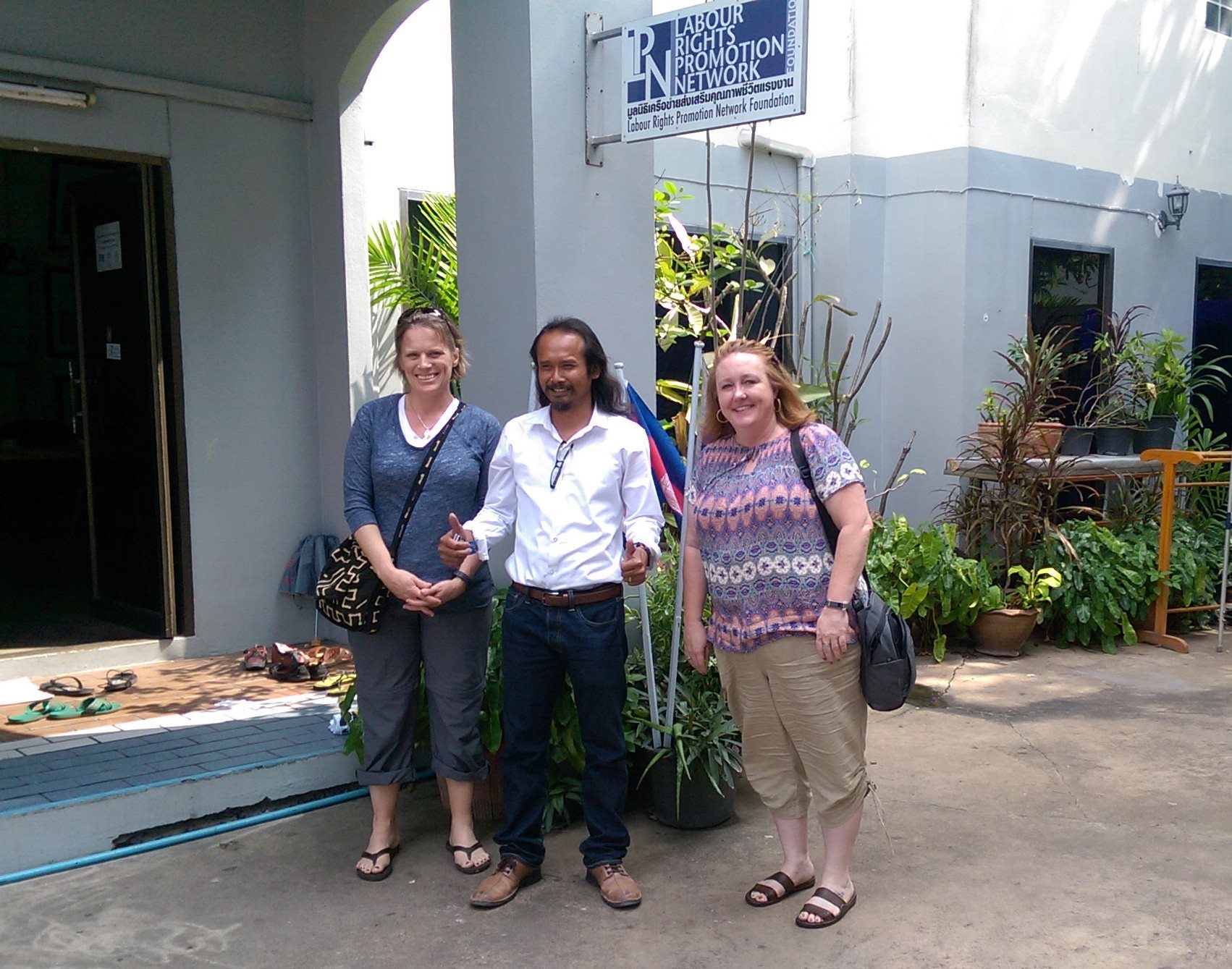
Migrant workers make up more than 10 per cent of Thailand’s workforce, the vast majority of whom come from neighbouring Myanmar. Yet, there are few safeguards to protect these workers from systematic abuse by employers and large companies. The exploitation which many of these workers face is akin to modern day slavery.
Late last year, I spent two weeks in Thailand learning about the challenges anti-sex and labor trafficking organizations face trying to protect vulnerable populations from exploitation. Our small group was lead by Carol Smolenski, executive director of anti-sex trafficking organization ECPAT-USA. Smolenski has been a pioneer of anti-sex trafficking movements for over two decades, and has built relationships with local and international organizations working in this space. One such organization is the Labor Rights Promotion Network.
Inspired by the treatment of migrant workers in Thailand’s seafood processing industry, founder Sompong Srakaew started the grassroots organization in 2006 to promote the integration of migrant workers and their families into Thai society. Through a volunteer interpreter, Srakaew describes the urgent need to rescue the thousands of fishermen who are being terribly assaulted, abused and forced into labor.
After he speaks, three freed migrant workers begin to share their stories. “They beat us if we aren’t working hard enough,” one told us through the interpreter.
“They told us that they would pay us but they never did. Because there are so many less shrimp in the ocean, we have to work harder, over 20 hours a day to get these shrimp out. One time, I tried to escape and they caught and beat me.”
“It is not just me or us [his two friends]. There are thousands of us.”
The Labor Rights Promotion Network assists with accessing legal aid and compensation for migrant workers’ work and injuries.
Injuries that can prevent future work are common in this vulnerable group. Outside the office we see one man missing an arm from the brutality of abuse from his employer. Another has huge welts or burns on his arms.
Considering the true cost
Trafficking is unfortunately a hidden cost in many of the goods and services we access daily and on our travels. Ethical Traveler promotes education and access to information as a key tool for addressing these injustices.
The Polaris Institute provides up-to-date information on legislation, educational articles, and in-depth analysis to help recognize the signs of both labor and sex trafficking. When we know the signs, we are given an opportunity to take a stand and even make a call that could potentially save lives. Interested travelers can also join advocate tours such as those run by ECPAT and Altruvistas. A portion of the trip fee is donated to local organizations such as the Labor Rights Promotion Network.
There is also a growing awareness of and rise in companies encompassing ‘fair trade’ practices. Being willing to pay extra to support fair trade products is a simple yet highly effective way you can help reduce these abuses. Education and action are the best tools you can access to become an advocate for trafficking.
Read Ethical Traveler's Reprint Policy.
